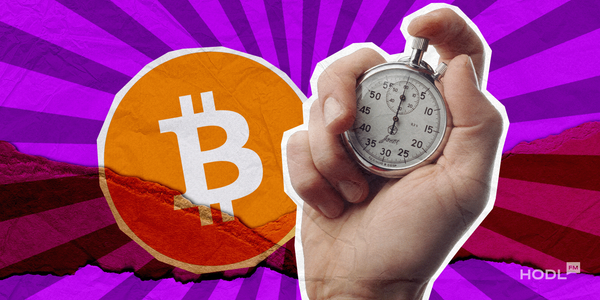If you don’t know about Bitcoin now, then you’ve definitely been living under a rock. It’s the most popular cryptocurrency in the world. It’s also the most valuable currency in and out of the crypto world, or did you think it was the Kuwaiti Dinar? Technically, Bitcoin is also the second most valuable currency, at least the Wrapped Bitcoin is. One Bitcoin is currently $51,754, and there’s no telling how high it could go. But don’t get too excited; it was worth less than a dollar for many years.
Related: What Does Spot Bitcoin ETF Mean for Investors?
Oftentimes, Bitcoin comes up and goes down just like the heartbeats and blood pressures of many investors and holders. However, many wonder who or what is raising or dropping the prices. Well, it’s not the creator of Bitcoin – an anonymous entity with the name ‘Satoshi Nakamoto’. So, who determines Bitcoin’s price if it’s not unknown entity? Read along to find out.
How Is The Value Of Bitcoin Determined?
Bitcoin price is not determined by one person, thing or entity. It’s determined by everything, everywhere, all at once. Many microeconomic and macroeconomic factors determine the price of Bitcoin, and we will look at all of them.
Supply and Demand
In economics, there is something called “The Law of Demand,” and it goes like this: “The higher the price of a good, the lower the demand, and vice versa.” “The Law of Supply” also goes like this: “The higher the price of a good, the higher the supply, and vice versa.”
This is part of what determines Bitcoin’s price. Although there are only going to be 21 million Bitcoins in existence, when there’s a lot of market demand for Bitcoin, the price shoots up, and this also fuels suppliers to sell to make a profit. In the words of Jean Baptist Say, “Supply creates its own demand.” But when demand is low, the price keeps reducing along with supply.
Market Sentiment
Market sentiment is the current attitude or mood of investors regarding a stock, an industry, or the entire financial market. Basically, it is just the vibe something is giving to investors. Regarding Bitcoin, the sentiment depends on factors like investor psychology, current and past trends, and even supply and demand. If it is positive, prices can go up, and when investors are not so sure, Bitcoin prices drop bit by bit. If you don’t think the market sentiment is real, Elon Musk once raised the shares of Dogecoin, a Bitcoin rival, by 20% with just this tweet.
Regulatory Environment
When it comes to Bitcoin, the laws of supply and demand are not the only laws that apply to it; the laws of the land also apply and affect its prices or even its existence in some cases. Cryptocurrency is banned in China, Algeria, Morocco, Bangladesh, Egypt, Iraq, Nepal, Qatar, and Tunisia.
Cutting off that huge chunk of the world from participating in crypto has affected both supply and demand and, of course, the prices, especially when new countries join the ban list. Laws are used in market manipulation, and supply and demand don’t do well in countries with harsh cryptocurrency laws.
But when the laws are good, Bitcoin goes up, just like that one time in October 2021, when the price of Bitcoin jumped up from about $40,000 to $69,000. It happened a few weeks after the SEC approved the first U.S. bitcoin-linked ETF: the ProShares Bitcoin Strategy ETF (BITO). Bitcoin and other cryptos hope to get global adoption, but bans and harsh laws keep setting them back.
Competition
Yes, Bitcoin is the most popular and valuable cryptocurrency. Still, according to Statista, there are about 9,000 different cryptocurrencies in the market today, each of which is improving with new technological developments to outclass Bitcoin. Altcoins or alternative coins reduce the demand for Bitcoins since they serve as alternatives. In turn, it reduces the price of Bitcoin. So next time the price of Bitcoin changes, you can blame Ethereum, BNB, Tether, and the other altcoins.
Production Costs
For a long time, the world has been complaining about Bitcoin’s high production prices or mining costs. Yes, Bitcoin costs more than a bit to mine because it runs on the energy-expensive Proof of Work process. According to Visual Capitalist, the average price of mining bitcoin across the world is around $35,404.03, and that’s more than half of its current price.
The high cost of production causes miners to move to other cheaper platforms, reducing the number of Bitcoins in supply. There has been talk about Bitcoin moving to Proof of Stake, which is cheaper, but there is no concrete evidence to back that up.
Media
Believe it or not, the media is one of the external factors that also helps influence the price of Bitcoin. While their job is just to keep investors and interested parties informed, the media affects the price of Bitcoin. When the news about crypto is good, its prices increase, and vice versa. This makes you wonder, do people still watch the news? It would appear that they do, and for those that don’t, there is always social media, especially Twitter, now known as X.
On X alone, the hashtags #bitcoin, #ETH, and #cryptocurrency are currently trending, with over 88,000 tweets using the #cryptocurrency hashtag. Sometimes it’s good news, and sometimes it’s terrible. Whether the news is positive or negative, Bitcoin is affected, especially its supply and demand.
Conclusion
Bitcoin has come a long way from being worth nothing to being worth over 50 thousand dollars per unit. But like every other currency, the price is not exactly stable.
More Info:
- Turns Out Bitcoin ETFs Matter!
- What Does Spot Bitcoin ETF Mean for Investors?
- Bitcoin’s Bullish Mood Drives Altcoins Forward
There are times when it goes up, and times it goes down. When this happens, it’s essential to know that the price fluctuation is not caused by a single factor; there are multiple things at play, both internal and external events. Bitcoin’s lack of a regulatory body means that its price will forever be left at the mercy of all these factors and more.
Disclaimer: All materials on this site are for informational purposes only. None of the material should be interpreted as investment advice. Please note that despite the nature of much of the material created and hosted on this website, HODL FM is not a financial reference resource and the opinions of authors and other contributors are their own and should not be taken as financial advice. If you require advice of this sort, HODL FM strongly recommends contacting a qualified industry professional.






